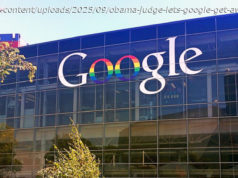Eric Holder came to town to campaign for the liberal candidate, and his group dumped $165,000 into the race. Joe Biden, Corey Booker and Gabby Giffords endorsed her, and more money came from a fund…
MADISON, Wis. — Eric Holder came to town to campaign for the liberal candidate, and his group dumped $165,000 into the race. Joe Biden, Corey Booker and Gabby Giffords endorsed her, and more money came from a fundraiser in San Francisco. Meanwhile, Wisconsin Republicans poured in $400,000 to support the conservative candidate, the state’s largest business group tripled that and the National Rifle Association publicly backed him.
The race drawing so much heat isn’t for Senate or even Congress. It’s for Wisconsin Supreme Court — a supposedly nonpartisan office that is the latest election to be treated as a barometer of voter attitudes heading into the fall midterms.
“As the first statewide race in the nation, this is our chance to set the tone for 2018,” read an invitation to the San Francisco fundraiser for Rebecca Dallet, the liberal-leaning Milwaukee judge. A Dallet win “is a critical first step in proving our values can prevail in swing states across the country,” it added.
Dallet faces Michael Screnock, a county judge who was appointed by GOP Gov. Scott Walker and has received Walker’s endorsement, in Tuesday’s election.
Conservatives are trying to keep their 5-2 majority on a high court that has been a reliable ally for Walker and his legislative agenda. The court upheld Walker’s signature 2011 law that effectively ended collective bargaining for most public workers and more recently stopped a secretive probe into Walker and conservative groups over alleged illegal campaign coordination.
Democrats feel emboldened after a surprise win in January for a state Senate seat held by a Republican for 17 years in a district Donald Trump won by 14 points. Democrats hope to keep the momentum going with a Dallet win ahead of two special legislative elections this summer.
“It seems like people are looking everywhere for signs of what may happen in November,” said Douglas Keith, an attorney with the Brennan Center for Justice, which tracks spending on court races nationwide. “I have no doubt whatever the outcome of this race, that’s how people will talk about it afterward.”
Wisconsin’s Supreme Court elections have been expensive and partisan battles for more than a decade. Spending on TV ads in the race likely will end up around $4.5 million, about what was spent on the 2016 race, according to the Brennan Center.
While there’s no doubt that Democrats this year are more energized than Republicans, it’s dubious whether one election can be an accurate bellwether of what’s to come in November, said Ryan Owens, a law professor at the University of Wisconsin who heads the Tommy G. Thompson Center on Public Leadership.
The race’s predictive ability for the November midterms could be tempered by low turnout. In seven contested elections for Supreme Court since 2000, average turnout was 21.5 percent — less than half of the 50 percent average for the past four midterm elections.
Mark Graul, a Republican strategist, pointed to Supreme Court elections in 2007 and 2008 where conservative candidates won, victories that came in between huge Democratic wins in the fall 2006 and 2008 elections.
“These Supreme Court races always come down to the candidate. In general, the candidate with the better profile wins every time,” Graul said.
Dallet, 48, has run as a tough-on-crime judge, focusing on her 11 years of experience as a prosecutor followed by 10 years working as a judge in Milwaukee. She’s argued the conservative-controlled court is “broken,” and she’s criticized the justices for not adopting a recusal rule forcing them to step down from cases involving large campaign donors.
Screnock, 48, has branded Dallet a hypocrite for taking donations from attorneys arguing cases before her court in Milwaukee, something state law permits. Dallet argues those donations, which totaled about $21,000, are small in comparison to the roughly $1.3 million being spent by the Wisconsin Chamber of Commerce to help Screnock. He’s declined to promise to step aside in cases involving the chamber.
He’s also refused to promise to step aside in abortion-related cases, although he was twice arrested for blocking access to a Madison abortion clinic during his college days in the 1980s.
Screnock has said he’s devoted to the rule of law and a strict interpretation of the Constitution. He argues that his experience overseeing the finances in Ashland and running city government in Washburn and Reedsburg, together with his nearly nine years’ experience as a private practice attorney before Walker appointed him in 2015, sets him apart from Dallet.
As an attorney, Screnock defended Walker’s collective bargaining law and political boundary maps drawn by the Republican-controlled Legislature that are now subject to a U. S. Supreme Court case alleging they amount to unconstitutional partisan gerrymandering.
The winner of Tuesday’s election will be on the state court during the next round of redistricting that follows the 2020 census.






